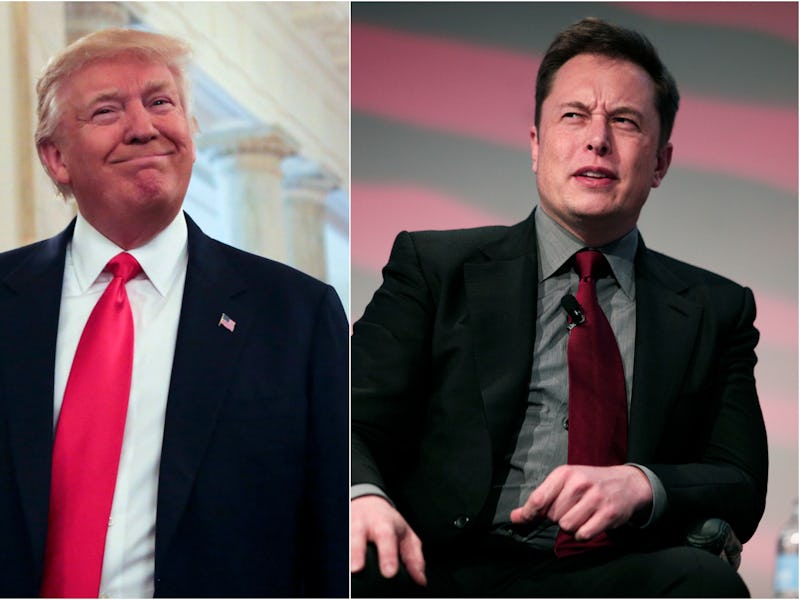Tesla had reason to celebrate this month when it reported $1 billion in revenue from China, good for triple the the previous year’s total. It sounds great, but some analysts think that the boom is precarious — because it’s built on the whims of local government and the hope that Donald Trump won’t do something rash.
A Chinese analysis firm called JL Warren Capital issued a research note on Tuesday that explained why Tesla has done so well. Obtained by Bertel Schmitt, an opinion columnist at Forbes, an excerpt written by the firm’s founder Junheng Li reads:
The key risk for Tesla in China, similar to that of all multinationals, is a change in policy. Tesla has benefited from the free license policy, which first started in Shanghai (May 2014) and has recently been initiated in Beijing (September 2015). If the government decides to alter or terminate the favorable policy to foreign electric car makers, Tesla’s sales are likely to plummet in China.
Basically, Chinese buyers in certain cities benefit from relaxed rules around license plates. Where gasoline-powered cars have tight restrictions on how many plates get handed out, the same restrictions don’t apply to electric cars.
Sounds good, right? The problem is, a change of heart from the Chinese government could spell the end of the free license policy that Tesla benefits from, and with it, the sharp spike in growth the company has experienced.
This is where Trump comes in: The president has pushed to develop an image that he’s listening to Silicon Valley. In December, Tesla CEO Elon Musk joined Trump’s Strategic and Policy Forum, aimed at advising Trump on issues that affect tech. The same month, he hosted a tech meeting in Trump Tower, the guest list of which read like a who’s who of industry names.
Trump meeting with Peter Thiel and Tim Cook in Trump Tower.
But Trump was also elected on a campaign denouncing China and other economies for siphoning off American manufacturing jobs. He said throughout his campaign that he wanted to label China a “currency manipulator,” claiming the country suppresses the value of the yuan to make exports more competitive.
Fears around relations between the two have been bubbling to the surface, with analysts exploring the issues around a trade war.
A trade war would be terrible news for Musk. Tesla has worked hard to get a foothold in China, and its past year of growth comes at an important time. China wants to reach five million electric cars on the road by 2020, and the government has plans to build 800,000 charging points over the coming year.
There’s an electric car push taking place in China, but if the country suddenly decides to react to the president’s actions, there’s no telling what could happen. Inverse reached out to Tesla for comment, and we’ll update this post if we hear back.
